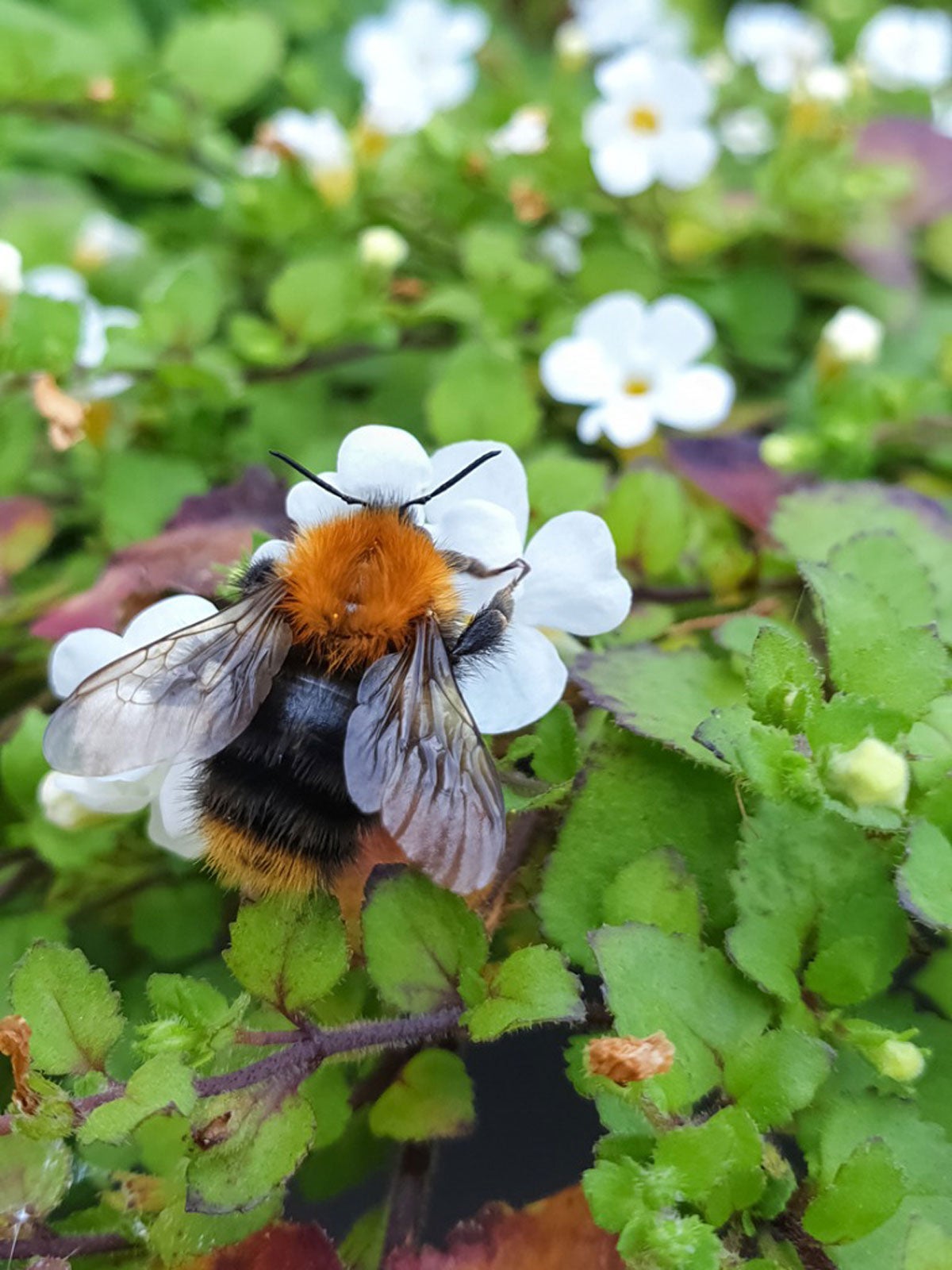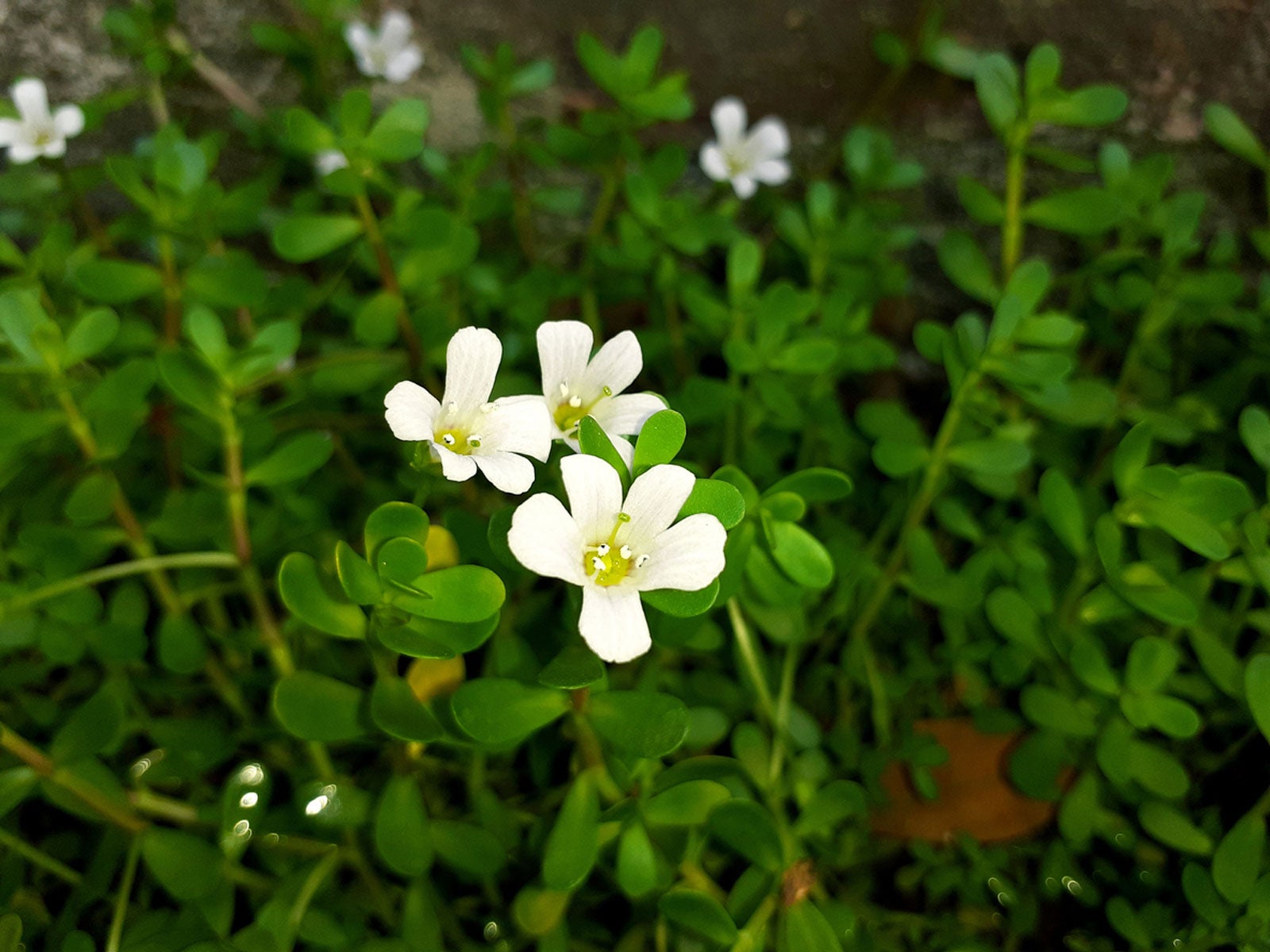Bacopa Plant Info: How To Grow A Bacopa Plant


The Bacopa plant is an attractive flowering groundcover. Its identification can be a bit confusing, as it shares a common name with a medicinal herb that is in fact a different plant altogether. Keep reading to learn more about this variety of Bacopa, and how to care for it.
Bacopa Plant Info
Growing Bacopa (Sutera cordata) is simple, and it has many uses in the sunny to part shade garden. Bacopa plant info indicates that the small plant reaches no more than 6-12 inches (15-30 cm.) in maturity. The low-growing specimen spreads vigorously to cascade over a wall or quickly cover bare spots under taller plants. The happy Bacopa trailing annual is often covered with tiny flowers from June through October. Flowers are in shades of white, pink, lavender, blue, and even coral red. The cultivar 'Giant Snowflake' has larger, white flowers and reaches just 3 to 6 inches (7.5-15 cm.) in height and is one of the original varieties of Bacopa trailing annual. When growing Bacopa plants, experiment with different varieties of the hybrids. 'Cabana' is a newer white-flowering form of the plant that is more compact. 'Olympic Gold' also has white flowers with variegated leaves of gold and green that requires a more shaded spot. Bacopa plant info says white flowering varieties offer the most long-lasting bloom. Also, when shopping for Bacopa plants, look for the name Sutera on plant labels.
How Do You Care for Bacopa?
Growing Bacopa plants is most easily done in containers. This allows for the consistent moisture necessary to avoid the interruption of flowering. Use Bacopa trailing annual as a filler plant in mixed containers and hanging baskets. Grow Bacopa trailing annual in a full sun to part shade location. Bacopa plant info on how to grow a Bacopa plant advises growing the plant where afternoon shade is available in the hottest areas. The tender annual is sometimes bothered by aphids, which can be dispersed with a strong blast of water from the sprayer. If aphids persist on new growth, treat them with a soapy spray or insecticidal soap. Neem oil is also beneficial. Now that you've learned the basics of how do you care for Bacopa and the many uses for the diminutive, spreading plant, add some to your garden this year.
Gardening tips, videos, info and more delivered right to your inbox!
Sign up for the Gardening Know How newsletter today and receive a free copy of our e-book "How to Grow Delicious Tomatoes".

Becca Badgett was a regular contributor to Gardening Know How for ten years. Co-author of the book How to Grow an EMERGENCY Garden, Becca specializes in succulent and cactus gardening.
-
 Looking For Plants To Give You The Soft And Fuzzies? Try These 5 Fuzzy Leaf Plant Options
Looking For Plants To Give You The Soft And Fuzzies? Try These 5 Fuzzy Leaf Plant OptionsLovers of texture, drama, silver foliage and tactile plants will adore these special sensory garden additions. These fuzzy leaf plant options will leave you all aglow
By Susan Albert
-
 Get Ready For A Summer Of Hummers! Grow These Full Sun Hummingbird Plants and Flowers
Get Ready For A Summer Of Hummers! Grow These Full Sun Hummingbird Plants and FlowersIf you’re lucky enough to enjoy a sunny backyard, make sure you are maxing out on your pollinator opportunities and grow these full sun hummingbird plants and flowers
By Tonya Barnett
